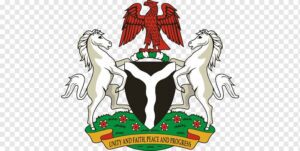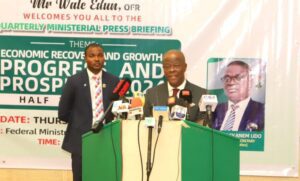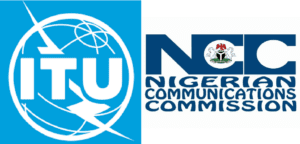
2022: After one calender year, basic, secondary education still in shambles
By Sodiq Adelakun
Nigeria’s education sector has undergone a lot of reforms and advancement. Number of primary, secondary and tertiary academic institutions has grown exponentially. Especially with the privatisation policy which enabled individuals and corporate bodies to establish schools, the quality of education leaves much to be desired.
However, the challenges facing education sectors in the Country are many. They range from poor infrastructure to industrial unrest, cultism, exam malpractices,corruption, maladministration, among others.
Nigeria’s public education sector is insensible while the private sector is also tottering.
It was gathered that there is no adequate staffing of the public schools in Nigeria from primary to tertiary level.
According to an academic, Jide Ojo,“There are many schools that depend on youth corps members to bridge the staffing gap. Yet, many of these corps members are not trained teachers and are only on the ground for one year of their service.
“Even in some cases where the Parent Teacher Association of the schools has offered to augment the teaching staff, there is no much commitment from the temporary staff due to their poor conditions of service.”
The latest data of the United Nations Educational, Scientific and Cultural Organisation (UNESCO) says the current number of out of school children in the Country is 20 million.
UNESCO, which says a new and improved methodology was used to arrive at the latest figures, said there are “244 million children and youth between the ages of 6 and 18 worldwide (who) are still out of school, with India, Nigeria and Pakistan having the highest figures of out-of-school children globally.”
Poverty, lack of schools, insecurity and tradition, among others, are the major factors pushing many children out of school.
Daily, during school hours, many underage children who are supposed to be in school, are seen in traffic selling sachet water and assorted drinks; in mechanic workshops and markets learning trade. Some beg for alms in between traffic, others carry loads for a fee in markets, while many are on the streets looking haggard, with some at bus stops ready to snatch bags from commuters.
In the North-East of Nigeria, only 41 per cent of eligible girls receive primary education. The figure is 47 per cent in the North-West. Social attitudes also impact negatively education rates, especially in northern Nigeria.
In North-eastern and North-western states, 29 per cent and 35 per cent of muslim children, respectively, attend Qur’anic schools, which do not include basic education skills, such as literacy and numeracy. These children are officially considered out of school by the government.
According to UBEC data, 37.82 per cent of primary school teachers are unqualified. The highest documented percentage of unqualified teachers at primary education level was in the Northwest (42.52 per cent), Southeast (41.82 per cent), and South-south (38.83 per cent). North-central Nigeria had the most percentage of qualified teachers at primary education level.
Some of the teachers are themselves also not competent. Not everyone is gifted to impart knowledge and as such mere recruitment of teachers is not enough, but the competence of those being deployed to teach in our schools.
In junior secondary education, the figure corresponds to 24 per cent of unqualified faculty. Most of the unqualified teachers were in the South-south (29.23 per cent), Northwest (24.76 per cent), and Southwest (23.72 percent). With this percentage of unqualified teachers at primary and junior secondary education levels in Nigeria, one can only imagine the quality of essential education received in the country. Not to mention, the dismal teacher to learner ratio in the country.
According to UBEC, the teacher-learner ratio for Nigeria at ECCDE level is 1:630. Although the ratio is lower at primary school and junior secondary levels, it is still poor. Teacher-learner ratio at primary school level in Nigeria is 1:72; at junior secondary school level, it is 1:42.
According to the United Nations Children Fund (UNICEF), Nigeria has 18.5 million out-of-school children, the highest number in the world and out of the figure, 10 million are girls.
The Chief of UNICEF Field Office in Kano, Rahama Farah, stated this at a media dialogue on Girls’ Education under the Girls’ Education Project 3, GEP three funded by the Foreign, Commonwealth and Development Office, FCDO and implemented by UNICEF. For those lucky to be in school, their condition is also not enviable given the situation of public schools in the country.
Only recently, the Universal Basic Education Commission (UBEC) said 50 per cent of schools in Nigeria lack basic furniture.
On May, 2022, the National President of the National Association of Parent-Teacher Association of Nigeria, (NAPTAN), Alhaji Haruna Danjuma, decried the manner some State Governments are implementing the Basic Education Policy of the government whereby pupils and students in primary and junior secondary schools are to enjoy free education and are given textbooks in some core subjects.
“Some States are not doing well in that respect. They have abandoned the programme. They are not funding education as it ought to be funded. Even counterpart funds that some states should put down to complement the funds from UBEC are not provided. Some states have even misused UBEC funds and are suspended from getting further grants.
“We are talking now about our tertiary institutions that are grounded by workers’ strikes, the basic education level, which is the foundation, is not faring better too. Something urgent must be done to redress the situation before the sector collapses finally,” he noted.
Recently, history was added basic education curriculum after 13 years.
The Minister of Education, Mallam Adamu Adamu, lamented the about his inability to provide solutions to the numerous challenges facing his sector, can actually claim this moment as a worthy achievement.
Lack of adequate welfare of both teaching and non-teaching staff in educational institutions have also impacted negatively on their productivity.
Some States are owing teachers’ salaries and allowances. As I write this, the Academic Staff Union of Universities has been on strike over the non-implementation of the union’s agreement reached with the Federal Government since 2009 as well as the attempt by the government to force them to enrol on the Integrated Payroll and Personnel Information System. This industrial unrest is impacting negatively on the smooth operation of Nigeria’s public universities.
Exam malpractices have been a worrisome development in our academia. Some students engage other people called ‘mercenaries’ to write external exams such as West Africa Secondary School Certificate Examination as well as National Examination Council examination for them.
In order to considerably reduce these incidences, the Joint Admission and Matriculation Board (JAMB) has had to insist that all its approved Computer-Based Test(CBT) centres for its Unified Tertiary Matriculation Examination should have Closed Circuit Television cameras. Despite that, JAMB in December 2019 accused some of the CBT centres of fiddling with the CCTV cameras in order to aid examination malpractices.
Hooliganism and cultism are another twin cankerworm that has eaten deep into the fabric of students of secondary and tertiary institutions in Nigeria. This is more rampant in public academic institutions. Hooliganism is often on display during secondary school sports fiestas such as Inter-House Sports and inter-school sports competitions. Cult clashes in our universities, polytechnics and colleges of education are also rampant.
Though cultism has been banned on campus, many of the groups defy the ban to clash with rival groups leaving in their trail sorrows, tears and blood and leaving the school community in palpable fear.
Corruption allegations are very rife in our academic institutions These are usually perpetrated by the leadership of the schools namely Headmasters, Principals, Provosts, Rectors or Vice Chancellors. Some of them impose illegal levies on their pupils and students. Even the government grants to the schools are sometimes mismanaged.
The 2017 Auditor General of the Federation report fingered many Vice Chancellors of corrupt practices as many of them failed to remit the 25 per cent of their internally generated revenue to government’s coffers.
Recall that the recent crisis that led to the removal of the immediate past Vice Chancellor of University of Lagos bordered on alleged corruption and maladministration.
By far the greatest challenge facing our education sector in Nigeria is the lack of adequate infrastructure. Many of the school buildings are dilapidated while the school environments are in deplorable conditions.
According to 2022 reports, many schools do not have good laboratories, libraries, classrooms or lecture theatres. Where they exist, they are overstretched due to the exponential increase in the students’ population.
Although the Federal Government has set up the Universal Basic Education Commission as well as Tertiary Education Trust Fund as interventionist agencies to support the grossly inadequate budgetary allocations to the education sector, these agencies have not been able to provide enough financial succour to the numerous schools needing their support.
In November 30, 2022, the Education Minister Adamu Adamu announced a government plan to abolish instruction in English on primary schools in favour of Nigeria’s local languages.
Presently, Nigeria is burdened with the highest population of out of school children in the world with most of those children residing in the North. To be a graduate in Nigeria, one would have to go through primary education, secondary education and tertiary education.



